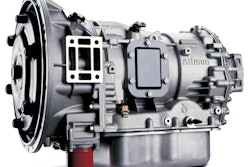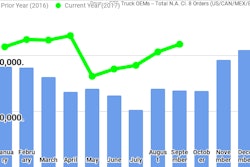Plans to extend the scope of the EU’s ePrivacy Regulation to Machine-to-Machine communications (M2M) should be shelved, warned representatives of Europe’s agricultural and construction equipment industries ahead of a crucial vote on the proposal in the European Parliament’s Justice and Home Affairs Committee next Thursday.
The extension could seriously harm the digital transformation in both industries and put their international competitiveness at risk.
M2M communications regularly occur between different industrial machines working, for instance, on major construction sites or in agricultural fields.
“As such, seamless M2M is the backbone for the successful digital transformation of the construction and agricultural sectors,” says Ulrich Adam, Secretary General of CEMA, the trade association representing the agricultural machinery industry in Europe.
Business-to-business relations covered by industrial M2M data exchanges are regulated by freedom of contract. Extending the scope of the ePrivacy Regulation would mean that the concept of personal consent could also be applied to this type of communication.
“Quite simply, such a step would be highly counter-productive and hamper future innovation through a series of unintended consequences, overlooked impacts, in-coherences between legal texts and outright misunderstandings. As such, it would be a serious blow to the EU’s ambition to build a Digital Single Market which is fit-for-purpose and open for business,” says Riccardo Viaggi, Secretary General of CECE, the trade association representing the construction machinery industry in Europe.
The proposed extension would go against the original objective the ePrivacy Regulation whose aim is to protect people’s lives and personal data in electronic communication and which is thus primarily directed towards consumers and natural persons to protect their privacy when acting in a personal capacity. The extension would also create incompatibilities with the General Data Protection Regulation (GDPR).
“Yes, we need to strike the right balance between protecting privacy and allowing for the fair and secure processing of electronic communications data. But extending the scope of the ePrivacy Regulation to M2M communications is certainly not the right way forward,” both representatives says.


![Hcm Ax Landcros Press Release[32] jpg](https://img.oemoffhighway.com/mindful/acbm/workspaces/default/uploads/2025/11/hcmaxlandcros-press-release32jpg.mAEgsolr89.jpg?auto=format%2Ccompress&fit=crop&h=100&q=70&w=100)







![Hcm Ax Landcros Press Release[32] jpg](https://img.oemoffhighway.com/mindful/acbm/workspaces/default/uploads/2025/11/hcmaxlandcros-press-release32jpg.mAEgsolr89.jpg?ar=16%3A9&auto=format%2Ccompress&fit=crop&h=135&q=70&w=240)








